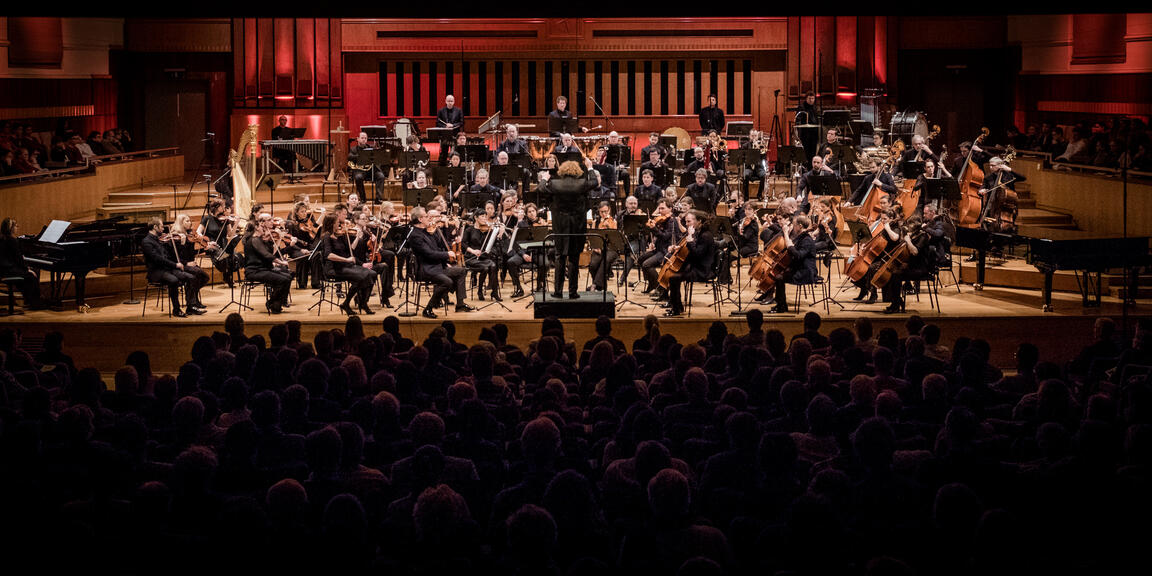
Shostakovich 7 'Leningrad'
Brussels Philharmonic
Update 10.03.2022 :
The Brussels Philharmonic family is home to more than 20 different nationalities. All of them passionate people who work together intensively day after day to make and share music. With respect for each other, for the public, for their profession, they show what can be achieved with mutual understanding and brotherhood: harmony, beauty, and unity.
We share the concerns of our musicians from the affected areas, who are justifiably worried about their families and loved ones and fear the impact of this conflict now and in the future.
After careful consideration, the Brussels Philharmonic together with partners Klarafestival, Muziekcentrum De Bijloke and Flagey, has decided to go ahead with the planned performances of Shostakovich's 7th Symphony 'Leningrad'.
There are several possible interpretations of this work, but whatever they may be, for us today the 7th Symphony conveys above all this important message: the frank indictment of the violence of war, the tribute to the resilience of humankind, and the recognition of the victims. And the permanent reminder that mutual understanding is the only certainty for a harmonious society in which respect for each individual takes centre stage.
#notowar
Update 25.02.2022 : Due to illness, conductor Michail Jurowski had to withdraw from this concert. He will be replaced by Yoel Levi. We wish Maestro Jurowski a speedy recovery.
No work was shaped by history as much as Dmitri Shostakovich's Symphony No. 7. From September 1941 German soldiers lay siege to Leningrad, today known as Saint Petersburg. Shostakovich was one of the three million people trapped in the city. Acutely conscious of the German threat, he decided to transform the work in one movement that he was working on into a Leningrad symphony in four movements that would be "dedicated to the fight against fascism".
The Siege of Leningrad lasted 871 days and cost the lives of about one million civilians. Shostakovich managed to flee the city in less than a month and was able to complete his symphony elsewhere. It was premiered by the Bolshoi Theatre Orchestra in exile and broadcast throughout Russia. In August 1942 a performance was even organised in the still occupied Leningrad. To ensure silence during the concert, the German artillery positions were the subject of particularly intense bombing beforehand.
The most memorable passage in Shostakovich's Symphony No. 7 is what has become known as the ‘invasion theme’ in the first movement. This theme, with its 11 variations, is reminiscent of Ravel's Bolero, draws inspiration from Hitler's favourite music (Da geh’ ich zu Maxim from the operetta The Merry Widow) and also refers to Shostakovich's own opera Lady Macbeth – of which Stalin had banned all performances. In other words, with his Symphony No. 7, Shostakovich not only took aim at the Nazi terror but at regimes of violence in general.
Flagey, Brussels Philharmonic, Klarafestival
In the context of
Klarafestival 2022
Let’s Stick Together
You may also be interested in:
-
Bezoek aan de archeologische site van de Coudenberg en wandeling door de wijk van de macht Bezoek aan de archeologische site van de Coudenberg en wandeling door de wijk van de macht
Before the concert, discover Brussels!
Sat. 19.03.22 — 15:00 -
Visite du site archéologique du Coudenberg et promenade dans le quartier du pouvoir. Visite du site archéologique du Coudenberg et promenade dans le quartier du pouvoir.
Before the concert, discover Brussels!
Sat. 19.03.22 — 15:00


